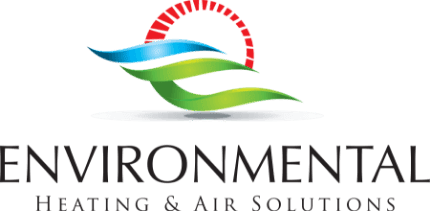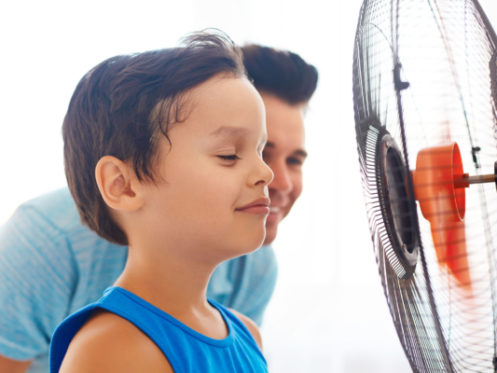Updated July 2023
Even if your HVAC system is new and has never needed routine maintenance, it will likely start to show signs of age in the summer. As you cool the home more aggressively, the HVAC system’s performance will decrease because of extra strain on coils and fan motors. It is essential to take care of your HVAC system throughout the summer months when demand for cooling is highest so that it can maintain its best performance throughout the summer.
1. Install a Smart Thermostat
A smart thermostat can be installed to automatically adjust the temperature based on user preferences and occupancy. For example, if no one is home during the day while you’re at work and it’s 85 degrees outside, the smart thermostat can readjust the air conditioner temperature to save energy but keep the house cool. These systems also allow you to pre-cool your home before arriving so that your house will already be comfortable and as energy efficient as possible when you get there.
Smart thermostats allow you to program them to heat or cool your home at the most convenient times. They allow you to monitor and control your HVAC system from a smartphone. This allows you to set the temperature based on the time spent in a room and whether the system needs more or less cooling. You can also easily schedule when your HVAC system is turned on and off. This allows you to automatically make minor adjustments in air conditioning or heating every few minutes remotely.
Smart thermostats monitor your system for potential issues such as malfunctioning coils or fans. They can send a notification to your phone if they sense any problem, which allows you to take action on-the-fly. They also allow you to monitor an entire home from your smartphone and control each system individually, which is more efficient and saves more energy because each system will be operating at peak efficiency.
2. Change Your Air Filters
Changing your air filters on time is the most important thing to keep your HVAC system operating at peak efficiency. Dirty air filters can strain a fan motor and overwork an evaporator coil, so your system must work harder during peak cooling times. Dirty air filters also reduce the amount of airflow through your vents, which can cause the home to feel warmer and cause energy loss to the system.
You should change your air filter once every month during the summer. Depending on how much dust is in the area where your HVAC system resides, you may need to change it more or less often. Dirty filters also may introduce contaminants, which can cause health concerns.
3. Ensure Your Coils Are Clean
The coils in your evaporator unit can become caked with dirt and dust, which negatively affects your system performance and can lower the efficiency of the air conditioner and furnace. Dirty coils cause the HVAC system to work harder to achieve the temperature you set it for, which means you will pay more for your energy bills.
You should clean your coils at least twice every year. You should also check them during the summer to ensure there aren’t any issues developing that may require repairs, such as a leak or a broken fan blade. For maximum efficiency, clean your coils before they begin to clog because cleaning them after they have become full of dirt, dust, pollen, and mold spores is much more expensive and time-consuming.
4. Clean Your Vents
Clean vents are also essential to ensure that your HVAC system runs efficiently and as energy-efficiently as possible. If your vents are blocked or dirty, the airflow will be restricted, and you may feel a forceful draft through your vents. This can cause the home to feel warmer and more humid, which is no one’s definition of comfort.
You should inspect your vents regularly for any blockages that may have developed over time or after a cleaning. You can use a simple household vacuum to remove debris from the vents and then wash them with a water and vinegar solution. You should also inspect the gaskets on your vents and ensure they are in good condition and free of cracks. As they get clogged up with dust, they may also deliver less-than-ideal air quality to rooms in your house.
5. Use Your Fans
When your house is hot, your HVAC system will struggle to cool it even if you have a high-end system. The best way to help your HVAC system cool your home during the summer months is by using fans to distribute the air throughout the home. This will reduce temperature gradients, so there won’t be any hot pockets in your home that could cause energy loss.
You should set up fans in different rooms of the house and ensure they are all moving air around. Otherwise, you may find that one room gets excessively hot while another stays chilly because of poor air distribution.
6. Check Coolant Levels
A check of the coolant levels in your HVAC system is a good maintenance routine that you should regularly perform throughout the summer. It’s also wise to check them to ensure they are at the right level, so your system operates at peak efficiency.
Whenever you check your coolant, you should check to see if there are any leaks or cracks in the hoses. These can lead to an increase in energy loss and issues with how efficiently your HVAC system runs. You should refill your coolant annually. If the coolant level is low, it may indicate that your cooling system isn’t performing as efficiently as it should.
7. Clean Your Air Ducts
Your ductwork helps carry airflow throughout your home and into the various rooms. When it’s dirty, this airflow may not happen as efficiently as it should, which can affect the performance of your HVAC system. To clean ducts, you should first unplug your HVAC system.
You should then check your ducting for any debris that may have settled in the ductwork. You should carefully remove the debris using a vacuum and gently blow it out of the system using a hose. You can also use a disinfectant or fungicide to help prevent mold growth in your ducts. You should also check your air ducts for damage, which you should do during the winter months. You should look for any holes or tears and then repair any damage.
8. Repair Leaks
Leaks in the HVAC system can cause a significant amount of unnecessary strain on the system. This is because your HVAC system will have to work harder to find its target temperature, which increases energy consumption.
9. Maintain the System
Regular maintenance is an essential part of any properly functioning HVAC system. This includes changing filters and cleaning out vents when they are clogged with debris. Consider scheduling your HVAC system a service call regularly to make sure your system is in top shape. Environmental Heating & Air Solutions in Roseville, CA can install and maintain your cooling and heating systems.
10. Address Indoor Humidity
In the summer months, higher humidity can create a problem for homeowners. If the house is too humid, it can lead to mold, which can be unhealthy for your family, and you may have problems with stains on furniture. Ideally, your HVAC system should have an air purifier that reduces indoor moisture to prevent mold from developing. Increased humidity can make you feel very uncomfortable.
In conclusion, the best way to improve your HVAC system is to maintain your system’s filters properly, have regular maintenance calls, and ensure that the home is properly insulated. Your HVAC system may be one of the most important aspects of maintaining a cool and comfortable home during the summer. We offer heating, air quality, plumbing, and air conditioning services. Contact Environmental Heating & Air Solutions today for more information.

